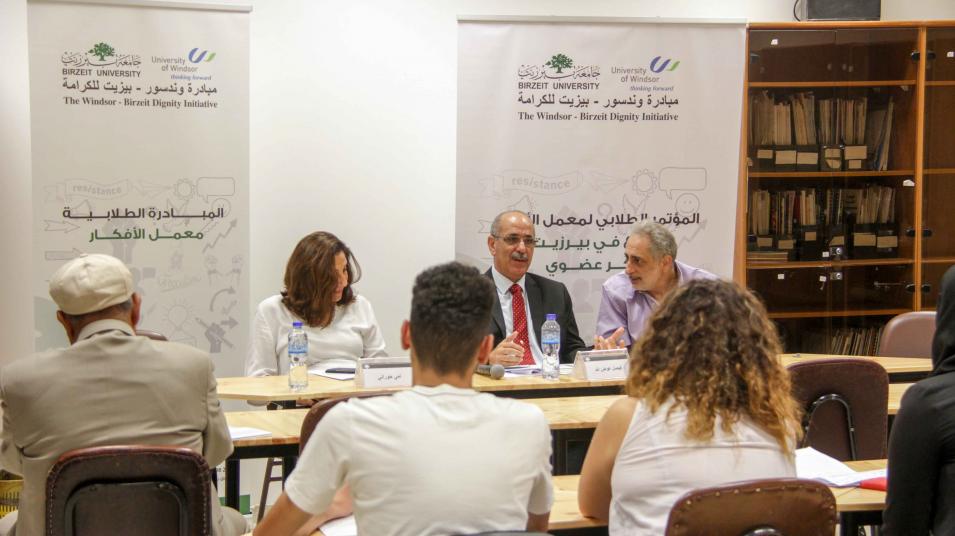Idea Factory Third Conference Discusses Youth Identity
Questions on Palestinian youth identity and its role in the public space dominated the third student conference held by the Idea Factory - a Birzeit University student initiative - on September 23, 2017. The conference, “Made in Birzeit - Organic Thoughts,” kicked off with remarks by Vice President for Academic Affairs Faisal Awadallah, Director of Muwatin Institute for Democracy and Human Rights Mudar Kassais, and Program Coordinator for Democracy and Human Rights at the Heinrich Böll Stiftung Palestine and Jordan Lama Hourani.
Awadallah said, “Freedom of speech, independence, and entrepreneurship are the cornerstones of our university. We are determined to encourage and drive students’ critical and independent thinking. Democracy, pluralism, freedom, and leadership are all fundamental values that are integrated in the university community and national identity, and which we seek to translate into practice.”
Hourani reaffirmed Heinrich Böll’s mission to support initiatives that promote critical thinking and offer a free space for youth to express their ideas. Heinrich Böll, according to Hourani, seeks strategic partnerships to achieve sustainability, democracy and human rights, self-determination, and justice worldwide.
Kassis talked about the interdisciplinary approach adopted by the initiative, which creates a secular space and allows students from different disciplines to discuss controversial issues in open debates, seminars, and conferences, critically and independently, so they can make a difference in their futures.
Kassis emphasized the importance of reaching out to all Palestinian universities to provide youth with a platform from which they can express their ideas and thoughts.
The conference discussed crucial issues related to youth identity and its role in the society. The first session, headed by Professor of Philosophy and Cultural Studies Rami Salameh, tackled the issues of identity, culture, and nationalism. That session included the showing of a short film exploring Palestinians’ thoughts about a refugee camp.
The Director of the Palestine and Arabic Studies Program (PAS), Hanada Kharma, headed the second session entitled “Public Space,” whereas the third session, headed by Israeli Studies Master’s Program Director Faris Shomali, discussed the role of youth movements and initiatives in Palestinian society.







